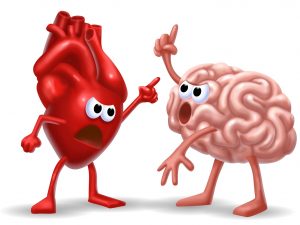 Sleep is a precious commodity in your busy life. Between work, taking care of loved ones, and running errands, it is a wonder you find time to sleep at all. However, it is important to make time for sleep because of all of the health benefits adequate sleep can provide. A recent study suggests that making a to-do list may help ease your mind so you can capture more sleep.
Sleep is a precious commodity in your busy life. Between work, taking care of loved ones, and running errands, it is a wonder you find time to sleep at all. However, it is important to make time for sleep because of all of the health benefits adequate sleep can provide. A recent study suggests that making a to-do list may help ease your mind so you can capture more sleep.
Why Is Sleep Important?
When you sleep, your body helps to regulate many processes in the body. Blood pressure, blood glucose levels, and bodily fluids are just a few of the processes regulated during sleep. When you do not get enough sleep, you can increase your risk of high blood pressure and elevated blood glucose levels. In addition, research has found that those who consistently received less than six hours of sleep each night were more likely to have a higher body mass index than those who received at least eight hours of sleep each night. Therefore, long term lack of sleep can not only increase risk of chronic diseases such as heart disease and diabetes, but also increased obesity risk.
How Much Sleep Is Enough?
The National Sleep Foundation recommends at least seven hours of sleep each night for most adults. Children two years of age or less require around 14 hours of sleep each day, including naps. Those between the ages of three and eighteen require around 10 hours of sleep each night. Children require more sleep to support their body’s growth and development.
Quality of sleep is just as important as quantity of sleep. Sleep quality may be low if you do not feel rested upon waking, wake up during the night, snore, or gasp for air during sleep. Sleep disorders such as sleep apnea may affect your body’s ability to get oxygen during sleep. This can impact safety during sleep and can make you feel fatigued upon waking. If you experience interrupted sleep or wake up tired, you should see your healthcare provider for further assessment. Pain, frequent urination, or breathing problems could prevent you from getting more sleep.
To-Do List and Sleep Research
A study in the Journal of Experimental Psychology looked at 57 Baylor University students and the effects of writing down unfinished tasks on sleep. One group of students wrote down unfinished tasks, while the other group wrote down tasks previously completed. All students were in a controlled environment and told to go to sleep at a set time. They were prohibited from staying up to look at phones or complete any other tasks. Those who wrote down unfinished tasks were found to have improved sleep by use of an overnight polysomnography test. Larger studies and observation of other age groups and individuals with sleep disorders such as insomnia will need to be done to confirm the effectiveness of such strategies.
Other Ways to Help Improve Sleep
Besides making to-do lists, here are some other ways to help you get more sleep and improve quality of sleep each night.
- Stay on a sleep schedule each night to help your body’s clock regulate itself. It may take some time to adjust to an earlier bedtime or earlier wake time. However, over time your sleep patterns will enhance quality and quantity of sleep.
- Exercise each day to help your body exert some energy. Not only will exercise help improve your sleep, but it can also help manage your weight, which can in turn help you reduce risk of sleep disorders such as sleep apnea.
- Take time to relax before sleep by engaging in meditation, relaxation breathing, and reducing screen time. The light from the screens on phones, computers, and television can interrupt the sleep-wake cycle. Adding in essential oil diffusion such as with lavender can help induce relaxation. In addition, drinking herbal teas with chamomile can help induce sleep.
- Avoid alcohol, caffeine, cigarettes, or heavy meals before bedtime since such things can cause interrupted sleep. Caffeine and alcohol can act as a diuretic, which may cause frequent urination that can interrupt sleep. On the other hand, the nicotine from cigarettes act as a stimulant and can in turn disrupt the sleep-wake cycle. Finally, heavy meals less than two hours before bedtime can cause indigestion and increase risk of heartburn, which can interrupt sleep.
- Ensure your sleep environment is conducive to sleep. Every ten years, you should replace your mattresses. Every few years or so, you should also replace your pillows to prevent exposure to allergens such as dust mites. In addition, reduced exposure to light sources in the evening can help keep your body’s rhythms in check. You can use blackout curtains to help reduce the amount of natural light in your bedroom.
- Add a supplement to your bedtime regimen to help you get more sleep. Somnova by Vita Sciences contains ingredients such as melatonin and L-theanine to help promote restful sleep.
If none of these strategies are helping, then be sure to visit your healthcare provider for more sleep guidance.
-written by Staci Gulbin, MS, MEd, RD, LDN
Sources:
Centers for Disease Control and Prevention (March 2, 2017) “How Much Sleep Do I Need?”
Division of Sleep Medicine at Harvard Medical School (December 18, 2007) “Sleep and Disease Risk”
National Sleep Foundation (accessed January 15, 2018) “Healthy Sleep Tips.”
National Sleep Foundation (accessed January 15, 2018) “How Much Sleep Do Babies and Kids Need?”
 Every new year, many of us make resolutions to be healthier. Whether it be weight loss, exercising more, eating healthier, or managing stress better, such resolutions usually start off strong. However, by early spring, such goals usually lose steam and get pushed off until the next new year. That is why it is important to plan ahead before making any goals so you can make sure they are realistic and backed up with a lasting motivating factor. With such planning, you can make your new year’s goals come true this year and maintain such healthy habits for the long-term.
Every new year, many of us make resolutions to be healthier. Whether it be weight loss, exercising more, eating healthier, or managing stress better, such resolutions usually start off strong. However, by early spring, such goals usually lose steam and get pushed off until the next new year. That is why it is important to plan ahead before making any goals so you can make sure they are realistic and backed up with a lasting motivating factor. With such planning, you can make your new year’s goals come true this year and maintain such healthy habits for the long-term.

 If you have ever tried to lose weight, then you probably have been told to track your calories. Most calorie trackers focus on keeping track of the calories you consume through food. On the other hand, fitness trackers or workout machines may track how many calories you burn during the day. However, is there more to the story of weight loss, or is calories in and calories out the only key to success? A recent report by health experts reveal that there may be more than simple math in the weight loss equation.
If you have ever tried to lose weight, then you probably have been told to track your calories. Most calorie trackers focus on keeping track of the calories you consume through food. On the other hand, fitness trackers or workout machines may track how many calories you burn during the day. However, is there more to the story of weight loss, or is calories in and calories out the only key to success? A recent report by health experts reveal that there may be more than simple math in the weight loss equation. you have high blood pressure, heart disease may be the health concern most on your mind. However, high blood pressure can be a risk factor for more than just heart conditions. A recent study has found that women in their 40’s with high blood pressure have an increased risk of dementia.
you have high blood pressure, heart disease may be the health concern most on your mind. However, high blood pressure can be a risk factor for more than just heart conditions. A recent study has found that women in their 40’s with high blood pressure have an increased risk of dementia. It’s about that time of year. Cold and flu season is greatly approaching. Although some employees may have paid sick leave, they may be afraid to use it for risk of ruining their reputation. On the other hand, maybe there is no one to cover their shift. Employees do not have a choice in workplaces where there is no paid sick leave. If these employees stayed home, they would risk losing pay, or in some cases, their job. A recent study has shown that workplaces without paid sick leave are at risk for harming the health of their employees.
It’s about that time of year. Cold and flu season is greatly approaching. Although some employees may have paid sick leave, they may be afraid to use it for risk of ruining their reputation. On the other hand, maybe there is no one to cover their shift. Employees do not have a choice in workplaces where there is no paid sick leave. If these employees stayed home, they would risk losing pay, or in some cases, their job. A recent study has shown that workplaces without paid sick leave are at risk for harming the health of their employees. When you hear about brain health, you may think of lowering stress and anxiety. However, having a healthy brain also involves reducing risk of stroke as well as memory conditions like Alzheimer’s and dementia. A recent report has found that keeping your body healthy is vital to keeping your brain healthy.
When you hear about brain health, you may think of lowering stress and anxiety. However, having a healthy brain also involves reducing risk of stroke as well as memory conditions like Alzheimer’s and dementia. A recent report has found that keeping your body healthy is vital to keeping your brain healthy. are? If you are a young adult, it is very likely that these questions have not been at the forefront of your mind when it comes to your health. A recent study showed that in 2013-2014, only half of the 6.7 million young adults from 18 to 39 years old were treated for high blood pressure. Meanwhile, only 40-percent got their blood pressure under control. However, blood pressure control is not only important for heart health, but for brain health as well. Recent studies have linked normal blood pressure levels with improved cognition in older adults.
are? If you are a young adult, it is very likely that these questions have not been at the forefront of your mind when it comes to your health. A recent study showed that in 2013-2014, only half of the 6.7 million young adults from 18 to 39 years old were treated for high blood pressure. Meanwhile, only 40-percent got their blood pressure under control. However, blood pressure control is not only important for heart health, but for brain health as well. Recent studies have linked normal blood pressure levels with improved cognition in older adults. difficult. A recent study has found that low estrogen levels in some women may be linked to depression.
difficult. A recent study has found that low estrogen levels in some women may be linked to depression. with depression learn more about the condition. Also, this foundation helps support research efforts to find better treatments for those with depression.
with depression learn more about the condition. Also, this foundation helps support research efforts to find better treatments for those with depression.